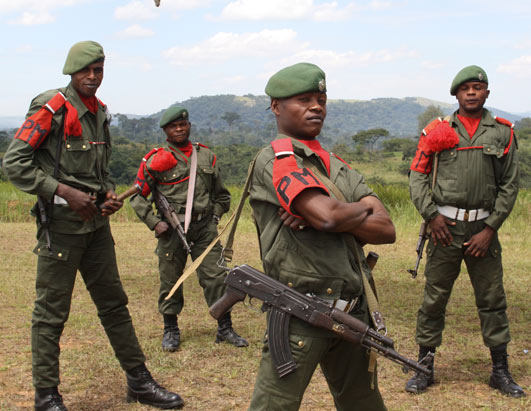By Daniel M. Austin
Impunity Watch Reporter, Africa

NIAMEY, Niger -On Thursday, a spokesman for al-Qaida in the Islamic Maghreb, or AQIM, claimed responsibility for the abduction of two French nationals from a restaurant in Niamey, Niger’s capital. The abduction, which occurred on January 7, ended when French Special Forces and Niger security personnel assaulted a convoy of vehicles containing the hostages. The hostages, along with several others were killed in the struggle. French government officials have not determined if the hostages were killed by the kidnappers before the firefight began or during the skirmish itself.
The two Frenchmen, Antoine de Leocour and Vincent Delory were forcibly removed from the eatery after two white pick-up trucks pulled up and the kidnappers stormed the restaurant. The two vehicles then left the Niger capital and began heading north towards the Mali-Niger border. It is believed that the convoy was headed to a region in southern Mali where AQIM has several hidden base camps. As the vehicles were reaching the border Niger security forces caught up to the kidnappers. The initial assault was conducted by Niger security forces and then French Special Forces arrived by helicopter and began shelling the vehicles from the air. According to the French government, the convoy’s movement was being monitored by French spy planes and Niger military personnel as it traveled towards the Mali border.
The firefight left both hostages dead along with four kidnappers and two men dressed in Niger military uniforms. It remains unclear if the two men wearing the military uniforms were killed in a friendly fire incident or were working with AQIM to help the kidnappers escape. Among the hostages, one was shot in the face at close range while the other died from burns, possibly when a gasoline storage tank exploded after being hit by a bullet from the French military.
Along with this incident, AQIM has claimed responsibility for kidnapping several other foreigners in the Sahel region. The Sahel region is an area that includes parts of Niger, Mali, Mauritania and Algeria. Authorities believe that AQIM has kidnapped and is holding five French citizens, a Togolese and a Madagascan in northern Mali. These individuals were kidnapped in September 2010 from Arlit, a uranium mining town in northern Niger.
For more information, please see:
AFP — One French Niger hostage burnt, other shot — 13 January 2011
AP — Report: al-Qaida claims Niger kidnapping — 13 January 2011
BBC Africa — Al-Qaeda claims responsibility for Niger kidnappings — 13 January 2011
The Telegraph — Al Qaeda claims kidnap of French hostages in Niger – 13 January 2011


